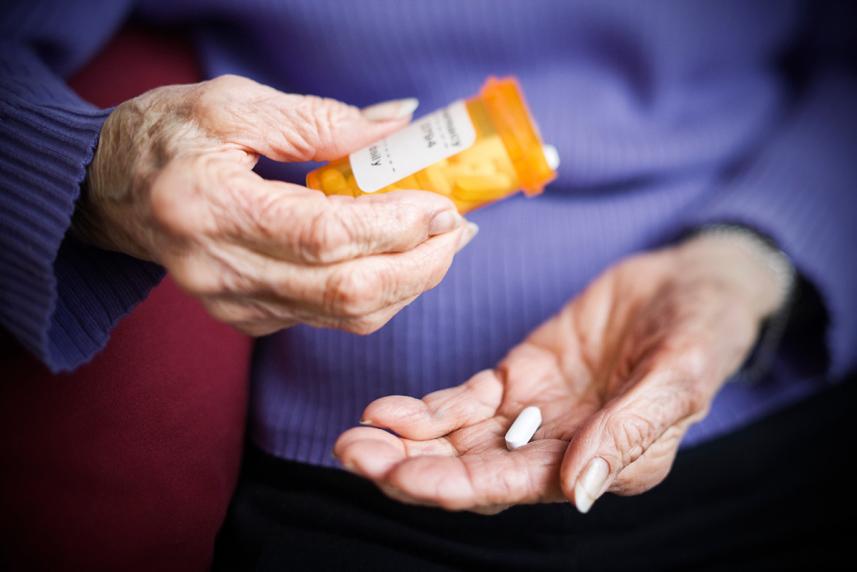Five facts about mental health medications after 65
Medication is a leading treatment across all age groups for people struggling with mental health conditions. Here's how these medicines can affect older adults.

Feelings of sadness and stress are common (and normal) throughout life. But mental health conditions such as depression and anxiety are not typical parts of aging. The good news? These conditions are treatable, no matter how old you are.
One leading treatment option is the use of mental health medications, such as antidepressants and antianxiety medications. These medicines work by affecting brain chemicals that regulate your thoughts and feelings. They are typically prescribed by your primary care physician (PCP) or a psychiatrist.
While these drugs can ease symptoms of depression, anxiety, and other mental health conditions, they may not be right for everyone. Consider these must-know facts about mental health medications before you decide to try them.
1. Mental health medications may interact with other medicines you take.
It’s important to tell your doctor about all the different medications you take, including prescriptions, over-the-counter medicines, vitamins, and herbal supplements. Different medications can sometimes have dangerous interactions when taken at the same time.
Older adults are often more sensitive to medications and may have a higher risk of drug interactions, according to the National Institute of Mental Health. What’s more, many older adults have multiple medical conditions and may take several different medications, putting them at increased risk of drug interactions.
2. Mental health medications may work differently as you age.
That means medications you took when you were younger may not work as well now that you’re older. But don’t be discouraged: The opposite is also true. Medications that didn’t work when you were younger may be worth giving another try.
Every person has a unique body chemistry, and that chemistry changes as we age. As a result, your body may process medications differently over time.
If you suspect a medicine is no longer working for you, consult your PCP or psychiatrist. They can help you find a different treatment option to try. However, if you’re trying a new medication, it’s important to give it enough time to work. Many antidepressants, for example, take four to eight weeks to work.
3. Mental health medications may come with side effects.
Like most medications, mental health medications can cause some unwanted side effects. But rest assured, their benefits typically outweigh any drawbacks. These side effects don’t happen to everyone. And many side effects may disappear after a few weeks.
Many of these side effects are relatively minor, such as mild headaches and drowsiness. Some may affect your ability to safely drive a car. Other less common side effects can lead to life-threatening issues, such as severe bleeding. (Serious side effects like these are very rare.)
Call your doctor if you notice any new or worsening side effects while taking a mental health medication. They can adjust your dosage to ease the side effects, or they may suggest trying a different medication.
4. Some antidepressants can increase your risk of falling.
Falling is the leading cause of injury for older adults. Each year, more than 1 in 4 older adults reports a fall, often resulting in a severe impact on their health and independence.
Antidepressant medications may come with some side effects that can increase fall risk, including:
- Drowsiness
- Heart problems
- Hyponatremia (low blood sodium)
- Lightheadedness
- Motor skill impairment
Research suggests that older adults who take antidepressants have a heightened risk of falling. Some seniors may be reluctant to try mental health medications for this reason. In reality, untreated depression increases fall risk in older adults just as much as the use of antidepressants does.
Your PCP can work with you to reduce your fall risk through exercise, diet, and medication.
5. Some antidepressants can worsen frailty.
Frailty and depression often go hand in hand. In fact, nearly 40 percent of older adults with a depressive disorder are physically frail. Frailty is when someone experiences strength and mobility issues, low energy, significant weight loss, and decreased activity levels.
Antidepressants may not work as well in older adults who are frail. They can even worsen symptoms of frailty. In these cases, your PCP may recommend a different type of treatment, such as talk therapy.
Mental health medications can affect people in many different ways, and it may take several tries to find the one that works best for you. With support from your care team, you’ll be well on your way to feeling better.


